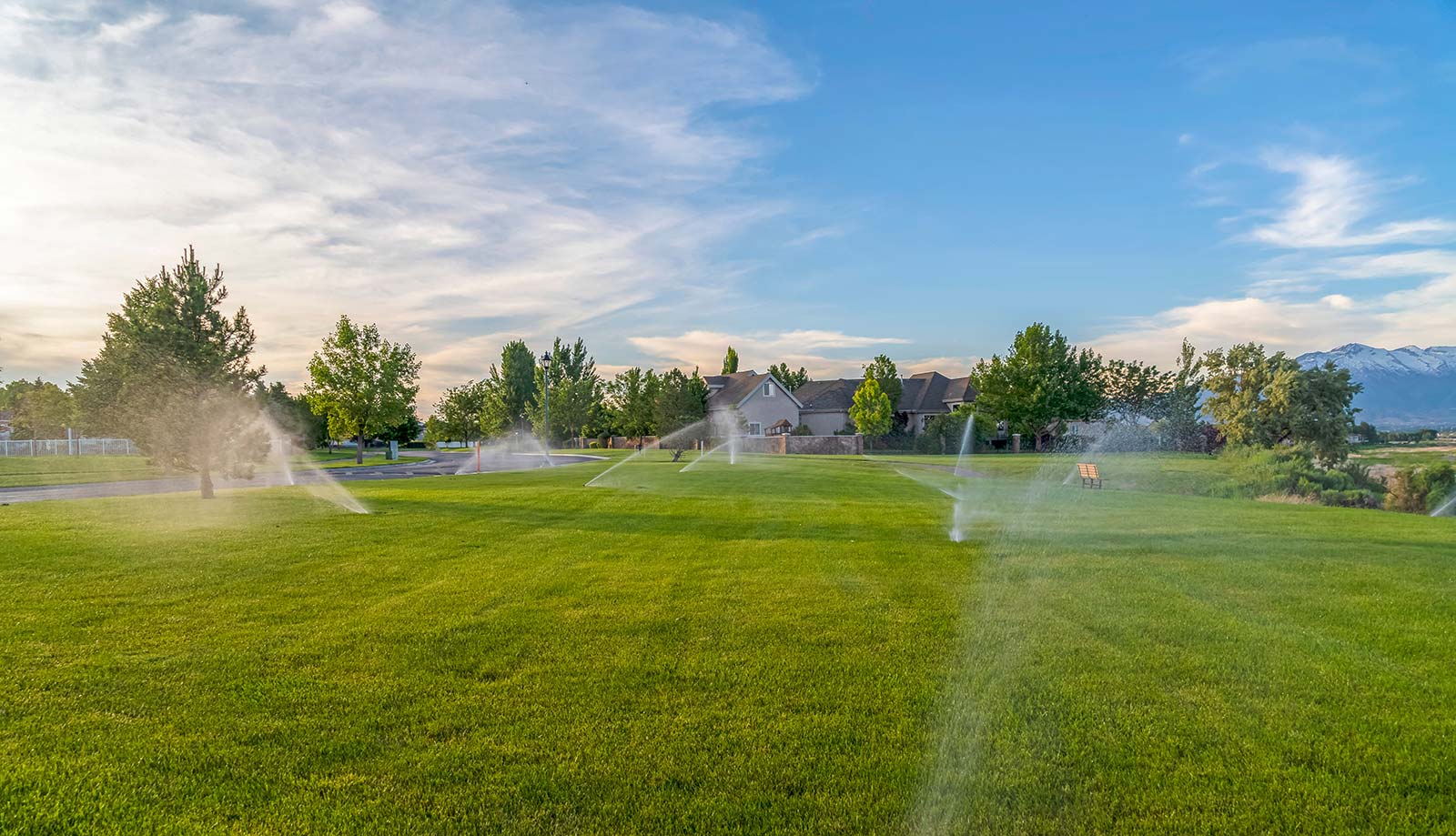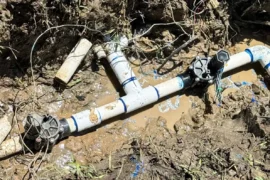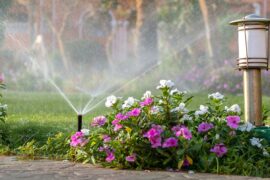Okay, so you’re staring at your dry backyard and thinking, yeah, something needs to happen. And then someone (probably your neighbor who has opinions about everything) says, “You going rotary or spray?” You nod like you know what that means, but let’s be honest – most folks don’t. It ain’t as simple as “this one’s better.” No no. It’s like trying to pick between pancakes and waffles when you’re half-asleep and the coffee ain’t kicked in yet.
Rotary Heads: Like Little Spinning Wizards That Take Their Time
Rotary sprinklers don’t rush. They’re like the slow-moving folks at a buffet who actually read what the food labels say. These guys spin. Literally. They rotate, spraying water in thin streams across a wide arc. Kinda hypnotic if you stare too long (don’t).
But here’s where it gets spicy – rotaries use less water… sorta. More like, they apply water slower. Which means, less puddles. Less runoff. Your plants get to actually use the water instead of it all sliding off into the street like your hopes of ever having a low water bill.
Also, fun fact nobody tells ya: they’re quiet. Like, eerily quiet sometimes. You’ll walk out, look at your lawn, and boom—it’s wet. And you didn’t even hear it happen. Witchcraft? Probably not. But still.
Spray Sprinklers: All About That Blast Life
Now spray sprinklers? Whole different animal. These are the ones that just go. Like, full blast. Think of ’em like a firehose, but for your lawn. They pop up, hit hard, and finish quick. It’s like lawn-speed dating.
They don’t move. No spinning. Just a fixed head shooting water in a fan pattern. Works great if you’ve got weird little nooks in your yard. Tight corners. Strips by the sidewalk. You know, the problem areas. But they can overdo it. Sometimes you look down and it’s like your grass is sitting in a soup. Not ideal. Unless you like swamp vibes.
Also: wind? It’s their enemy. A gust and suddenly your driveway’s getting all the hydration while your flower bed’s out here looking crispy.
Water Pressure Drama: Who’s the Diva?
Here’s something that caught me off guard – rotaries need pressure. Not like emotional pressure. Literal PSI pressure. If your home’s got weak water flow, they might just stand there doing nothing, spinning like a confused fidget spinner.
Spray heads? They’re less picky. You can run more of ’em on one zone without tripping breakers or blowing pipes. They’re like the low-maintenance friend who doesn’t care if you forgot their birthday.
But that doesn’t mean spray’s always better. Nah. Sometimes that high volume means you’re refilling the soil’s metaphorical cup faster than it can drink. That’s waste, plain and simple.
Coverage War: Overlap or Gaps?
This one’s dicey. Sprays cover tight, sharp-edged areas better. Think postage stamp lawns or those weird L-shaped yards city planners love to throw in. But they don’t always play nice with curves or gradients.
Rotaries? They’re chill with uneven ground. Like, hills? No sweat. And they’re made for big spaces—fields, parks, those lawns rich people casually refer to as “the yard.” But if your layout’s funky and you mix too many types in one zone? Welcome to the jungle, buddy.
Installation Shenanigans
You think this part’s gonna be easy, but nope. Sprays usually need more heads per square foot. That means more digging, more pipe, more labor. So while the individual heads are cheaper, the job overall? Eh, not always.
Rotaries cost a bit more per piece. But fewer of ’em. Less trench warfare in your front yard. Still, if you screw up spacing with rotaries, you’ll get those annoying dry patches that make your lawn look like it’s got mange.
Maintenance: Who’s Gonna Ghost First?
Let’s not pretend anything lasts forever. Spray heads clog. They clog like nobody’s business, especially if you’ve got well water or mineral-heavy city stuff. Dirt gets in. Debris. Spider webs if you’re unlucky.
Rotaries? Fewer clogs. They’re like the dude who somehow never gets sick even though he eats gas station sushi. But when they do break, oh boy – you’re probably not fixing it yourself. Unless you like lying on the lawn cursing at tiny gearboxes.
What Do Plants Even Want?
Not to be dramatic, but plants are kinda picky. If you’re watering shrubs or beds with mulch, rotaries might be better. Slow water means it seeps in rather than bouncing off. Sprays, on the other hand, can actually launch mulch outta place. Seen it happen. Looked like a garden explosion.
But for delicate plants? Sprays can mist, if you tweak the pressure right. Sometimes that’s exactly what you want. Sometimes it’s just… mist. On the wind. Going nowhere useful.
Alright, But What’s It Gonna Cost Me?
Nobody likes talking numbers. But it matters. Spray systems can seem cheap at first. The heads are like, what, a couple bucks? But by the time you’ve installed a zillion of ’em, your budget’s looking tired.
Rotaries? Pricey up front. But less of ‘em. Less pipe. Maybe lower bills long-term if you’re smart about zoning and watering times.
Still though – whatever you pick, you will mess something up. And then fix it. And then mess up something else. That’s just how sprinklers work. It’s a dance. <h2>The Oddball Hybrid Option</h2>
Some folks mix the two. That’s chaos. Not always bad chaos, but still chaos. Your timing’s gotta be perfect. Zones gotta be separated. Pressure balanced like a tightrope walker carrying soup. It’s doable, but don’t go there unless you really like spreadsheets.
The Verdict? Eh… There Isn’t One
Honestly? Depends. Big yard? Rotary. Small nooks? Spray. Hate maintenance? Flip a coin. Like arguing with your spouse about water pressure at 7am? Install both and live your truth.
Just know this: your grass don’t care what head you picked. It just wants consistent water and for you to stop stepping on it every morning like it’s not trying its best.
And no matter what system you go with, eventually, you will forget to shut it off and soak your neighbor’s car. It’s almost a rite of passage.





